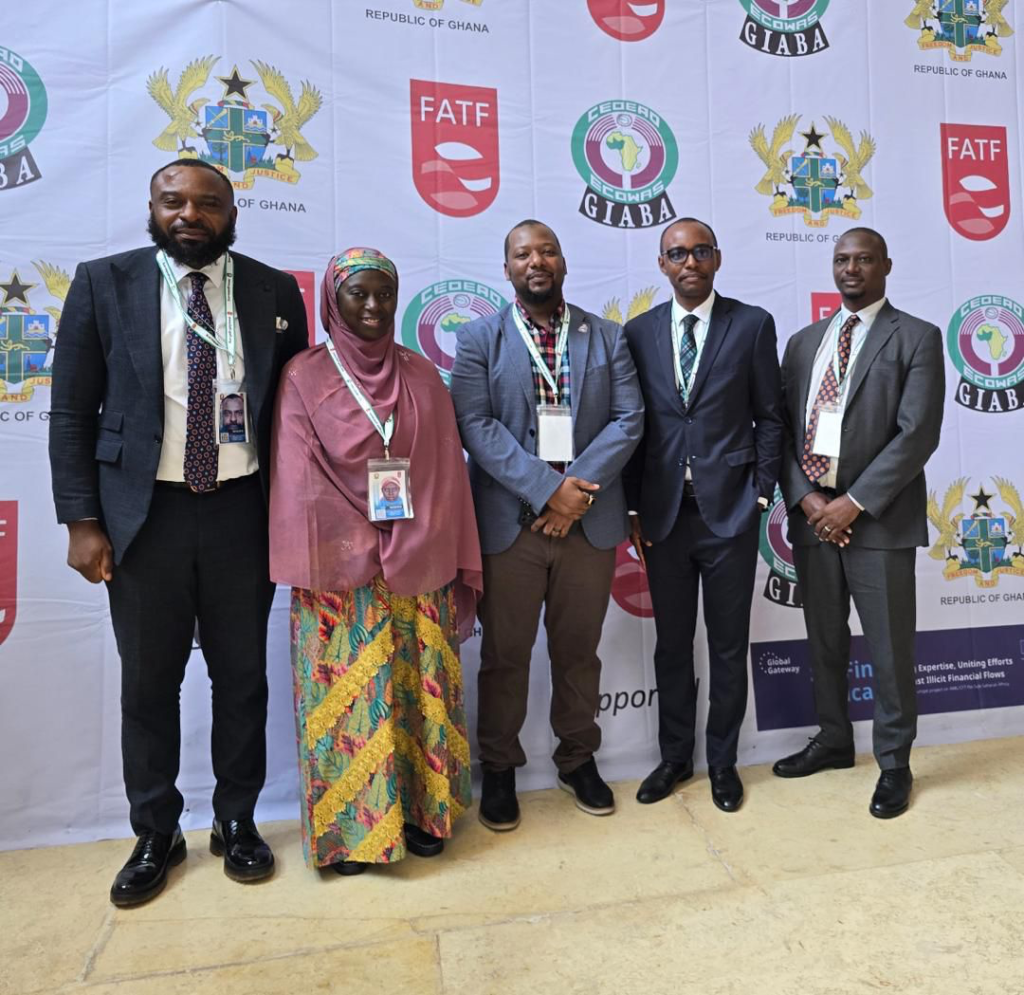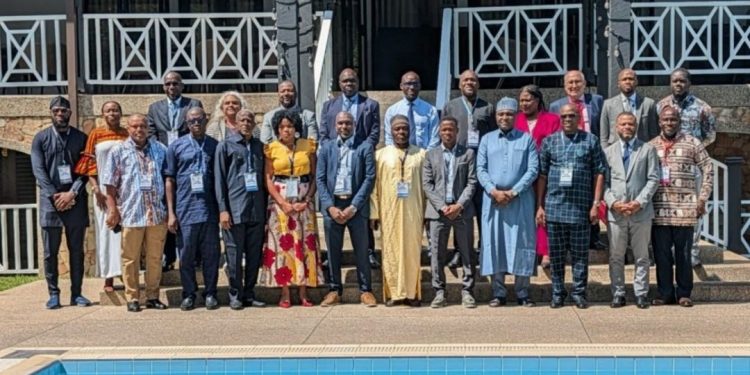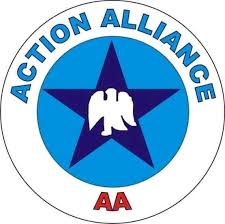By Nkechi Eze
In a renewed demonstration of Nigeria’s leading role in advancing global financial intelligence and anti-money laundering standards, senior officials of the Nigerian Financial Intelligence Unit (NFIU) participated actively in the 2025 Joint Experts Meeting (JEM) jointly organised by the Financial Action Task Force (FATF) and the Inter-Governmental Action Group Against Money Laundering in West Africa (GIABA), held in Accra, Ghana.
The FATF–GIABA Joint Experts Meeting is a strategic annual forum that brings together technical experts, policymakers, and practitioners from across the world to exchange experiences, analyse typologies, and deepen collaboration in the fight against money laundering, terrorist financing, proliferation financing, and other related financial crimes. The 2025 edition focused on strengthening regional and global cooperation mechanisms, improving risk-based approaches, and building resilience within national financial intelligence frameworks.
The NFIU delegation’s participation reaffirmed Nigeria’s active engagement in shaping the international conversation on financial integrity and its strong commitment to implementing global standards under the FATF and GIABA frameworks. Through its contributions, the delegation underscored Nigeria’s leadership in developing innovative responses to transnational financial threats and its technical capacity in aligning domestic measures with global best practices.

Mohammed Shahid Ahmed, Chief of Staff to the NFIU Chief Executive Officer, took a central role by moderating a high-level panel on Trade-Based Financial Crimes in the Lagos–Abidjan Corridor. The session reviewed findings from a GIABA research project, exploring vulnerabilities in regional trade networks and outlining strategic recommendations to curb illicit financial flows across West African borders. His moderation emphasised the importance of intelligence sharing, customs cooperation, and enhanced transparency in trade documentation.
Ibrahim Ditse, Head of the Counter-Terrorism Financing Department, delivered a technical presentation on Protecting the Non-Profit Sector from Terrorist Financing, where he highlighted Nigeria’s experience in promoting risk-based supervision and proactive engagement with charitable and faith-based organisations. He stressed that balancing regulatory oversight with the protection of humanitarian work remains vital to countering the abuse of the non-profit sector by terrorist groups.
On another panel, Jacob Yepwi, Head of the Anti-Smuggling Section, contributed to discussions on Developments in Fraud from West Africa to East Asia, where he showcased Nigeria’s collaborative initiatives with international partners to tackle emerging fraud typologies, cyber-enabled financial crimes, and cross-border smuggling schemes.
Other members of the NFIU delegation included Amina Babagana, Head of the Strategic Analysis Department and member of the GIABA Policy Review Group, and Abomaye Ushaka, Head of the Counter-Narcotics Trafficking Department and Co-Chair of the GIABA Risk and Trends Monitoring Group (RTMG). Both officials played key roles in technical sessions examining policy reforms, typology research, and regional coordination frameworks.
By actively engaging with counterparts from across the FATF and GIABA networks, the NFIU delegation strengthened Nigeria’s strategic alliances and reinforced the nation’s reputation as a regional leader in the implementation of Anti-Money Laundering, Countering the Financing of Terrorism, and Counter-Proliferation Financing (AML/CFT/CPF) measures.
The 2025 Joint Experts Meeting concluded with renewed commitments from participating countries to enhance intelligence exchange, promote ethical financial governance, and consolidate efforts toward a unified, resilient regional AML/CFT framework capable of addressing the evolving complexities of financial crime in West Africa and beyond.
















